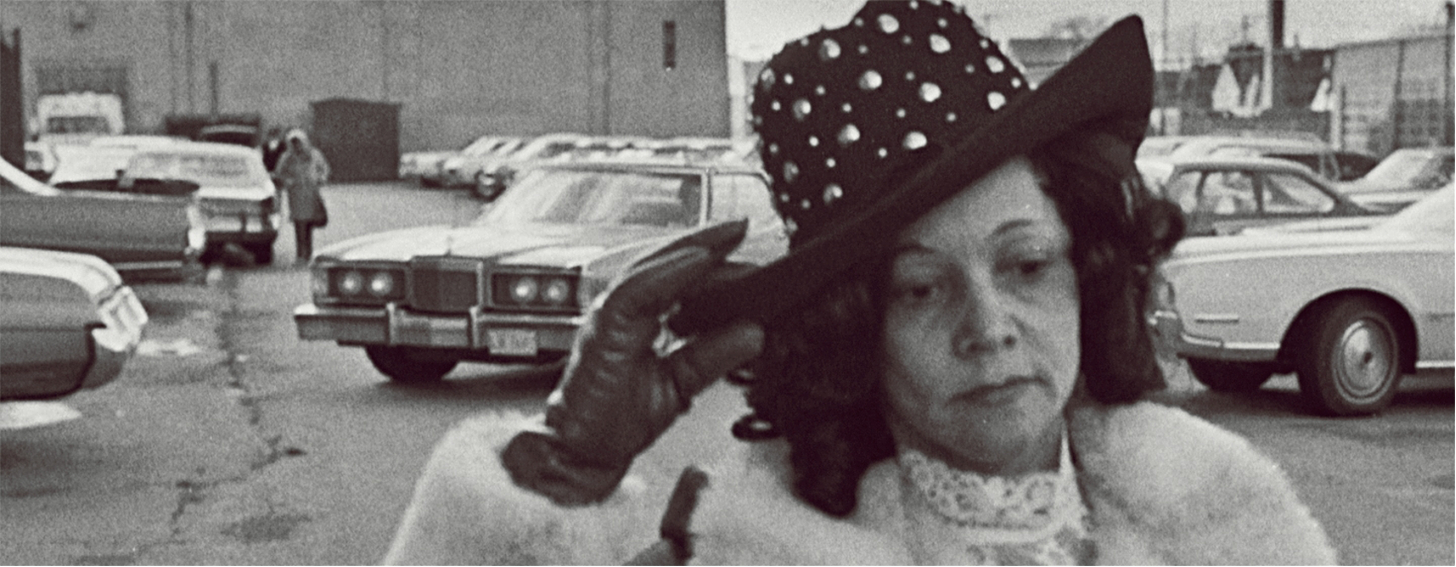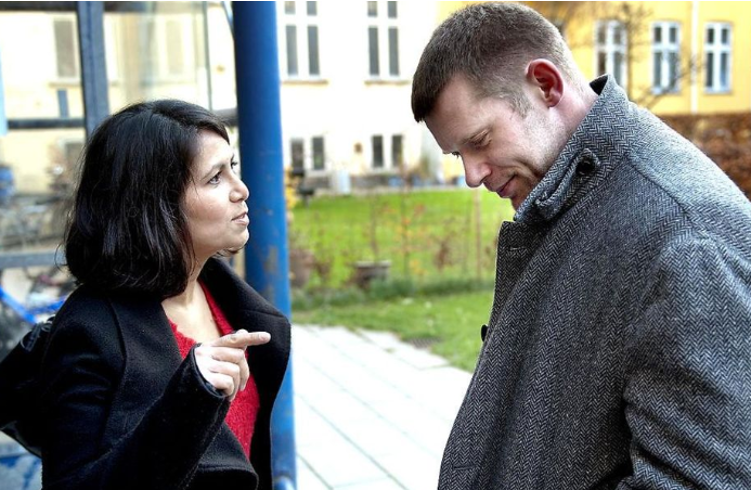Of ‘Welfare Queens’ and ‘Poor Carinas’
New evidence that negative political messaging can affect the mental health of welfare recipients
“There's a woman in Chicago. She has 80 names, 30 addresses, 12 Social Security cards and is collecting veterans’ benefits on four non-existing deceased husbands’, said Ronald Reagan; ‘And she's collecting Social Security on her cards. She's got Medicaid, getting food stamps and she is collecting welfare under each of her names. Her tax-free cash income alone is over $150,000.”
Ronald Reagan made Linda Taylor1 a central part of his presidential campaigns. The “welfare queen” illustrated how political messaging can evoke and reinforce stereotypes that powerfully shape public views, in particular the willingness to support the welfare state.
I’ve always been fascinated about the “welfare queen” trope, and one particular question: How do the welfare recipients who are targeted by such negative messaging feel?
I don’t mean Linda Taylor, but all of those who receive welfare benefits. When they heard Reagan or other politicians today talk about welfare recipients who cheat, or use supports in a way deemed wasteful (food stamp recipients spending on lobster and soda!), do they brush it off, or feel stigmatized?
There is already robust evidence that politics influences public health via its impact on policies and institutions. There is also evidence that being stigmatized, as are those who are obese, disabled or in the LGBTQ community, negatively impacts mental health. But can negative political messaging directly affect the targets of that messaging by undermining their mental health?
With my fellow researchers Martin Bækgaard and Pamela Herd, we set out to answer this question. The results, published in the British Journal of Political Science, find that negative political messaging can worsen the mental health of welfare recipients, to the point that they are more likely to increase their use of stress/anxiety-reducing medication.
From the Welfare Queen to Poor Carina
The biggest challenge to answering our question is that political messaging that affects mental health will reflect the environment that creates it. As academics love to say, cause and effect are endogenous. Reagan's welfare queen characterization is memorable but occurred in a broader historical characterization of welfare recipients that preceded Reagan. It fed into, rather than broke, previous expectations. So by the point that Reagan started using it, would it make any real difference?
To separate out the effects of deservingness messaging from other factors requires a setting where deservingness messaging achieves widespread dissemination and legitimacy in a way that is a substantial break from the past.
We found such an example in the context of the Danish welfare system. In 2011, the case of ‘Poor Carina’ offered an accelerated Danish version of the welfare queen framing, sparking criticism of welfare recipients who were seen as receiving excessively generous benefits while not seeking work. A politician at the center of the debate welcomed the case as a new opportunity to advance a more critical tone against the welfare state: “for a very long time it has been taboo to talk about the Carinas.”
On 28 November 2011, a 36-year-old single mother given the pseudonym ‘Carina’ was visited by two members of the Danish parliament.
Özlem Cecik, a representative of the Socialist People's Party, part of the government coalition, had sought out Carina as an example of someone who was on welfare benefits but still faced real needs. Joachim B. Olsen, from the opposition Liberal Alliance party, had argued that no-one on welfare was truly poor. As details of Carina's case were debated between the two politicians on national television, it became harder to sustain that Carina was poor in an absolute sense. She was earning about US$2,700 per month after tax, including subsidized housing, which was far above the official Organisation for Economic Co-operation and Development (OECD) poverty limit.
Carina's stated lack of desire to engage in employed work, perceived ungratefulness for benefits and higher disposable income than some working in low-income jobs touched upon some key criteria by which deservingness is established. The backlash picked on such details as her flat-screen TV, her use of cigarettes and her reluctance to ask her family for support. On welfare from 16 years of age and hoping to be awarded disability benefits because of anxiety, Carina was compared unfavorably to the working poor.
The nickname “Poor Carina” was intended to be ironic, conveying her lack of deservingness. Politicians from both opposition and government argued that Carina was proof that it did not pay to work. The Minister of Social Affairs at the time said:
Many Danes need to seriously re-address their own value system and again take a pride in managing in their own lives. We have to stop considering society as a ‘smorgasbord’ that we don't need to contribute to, and that's a debate I'd like to see high on the social welfare agenda.
In the aftermath of the Poor Carina backlash, approximately four out of ten Danes changed their opinions on social assistance benefits, generally becoming less supportive, and the framing of welfare recipients as undeserving became more prevalent in Danish media.
So how might we test if such messaging affected mental health in a persuasive and objective way? Here, we took advantage of extraordinarily detailed administrative data available in Denmark. We could go back and see if welfare recipients became more likely to use antidepressants in the immediate aftermath of media coverage of the case. Rather than use subjective self-reports of mental health, we relied on objective indicators that recipients felt sufficiently motivated to seek out medical help, and that medical professionals felt that their condition warranted additional prescription medication.
If you want to see the details of how we estimated this, along with various robustness tests, take a look at the paper, which is open access.
The bottom line is that coverage of the Poor Carina case was associated with greater prescription of antidepressants to the target population of welfare recipients. We observed a 1.2-percentage-point increase in the use of antidepressants in the weeks following a critical media event.
Negative messaging will not affect all groups in the same way. Our second big finding is that while the effects hold across a variety of demographic characteristics, they were approximately four times higher for welfare recipients with prior mental health diagnoses. People with prior disadvantages, especially health problems, tend to struggle more with administrative burdens, in this case being vulnerable to psychological costs that arise from negative messaging.
I don’t think our findings will change how politicians and media report on welfare, or stop the use of unrepresentative examples to complain about welfare recipients. But they should give them some pause: target groups who are being presented as deviants in some way — think also immigrants, or ethnic minorities — hear and internalize those messages.
This does not mean that politicians or the media should not talk about welfare. But it would help to use representative examples, or at least put problematic examples like Carina in context. That context includes how welfare, in aggregate, helps people access better lives, such as education and better jobs; how most of us benefit from welfare of one form of another that we often don’t acknowledge (am I deserving of my mortgage interest deduction?). Finally, they should understand — or at least care — that negative political messaging has costs and those costs may be greater for the most vulnerable among us.
Reagan exaggerated some details, but Taylor’s story was both darker and less representative than he portrayed. Taylor did engage in welfare fraud, and did indeed drive a Cadillac and wear a fur and expensive jewels as Reagan suggested. But welfare fraud appeared to be the least of her crimes, which likely included child trafficking, kidnapping, and murder. While this information would not have been available to Reagan at the time, it undercuts the idea she was in some sense representative of a broader welfare population. One of her own lawyers described her as “a scam artist like I have never run across since.” However, the particular and unusual characteristics of Taylor as a person was subsumed into the stereotype of the “welfare queen.” If you want to learn more about her extraordinary life, Josh Levin’s book and podcast on the topic are terrific.





Interesting history. The bigger story, in my view, is about the millions of people who never get the public assistance they need because we are more concerned about preventing access by the Lindas and Carinas. This includes people who cannot navigate the bureaucratic maze or fail one of our many tests such as work requirements. We should take a close look at the message sent by policies that stigmatize applicants for stingy benefits while making generous tax deductions and credits available to wealthy citizens on the honor system.